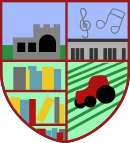Humanities
Curriculum Rationale
At Newborough, we are developing our humanities curriculum offer by moving away from using Rising Stars to Opening Worlds. After much research, we have collaborated with Haringey Education Partnership and are implementing their Opening Worlds humanities curriculum for history and geography. This began in Summer 2021 for year 3 pupils and this cohort are continuing to follow the programme as they move up the school.
Each new Year 3 cohort will begin it in September and consequently, the Opening Worlds will be fully implemented in 2024 from Years 2 to 6. We feel that the Opening Worlds curriculum will give our teachers the absolute best subject-knowledge and resources to teach history and geography effectively, and in an engaging, motivating way. As a result, our children will benefit from a knowledge-rich curriculum which makes clear links between the humanities subjects and offers a depth of learning across a wide range of engaging themes and topics.
Whilst ‘Opening Worlds’ will begin at the end of year 2 at its full implementation, we will continue to offer a range of historical and geographical themes in Key Stage 1 to ready them for their Key Stage 2 learning. More details, including curriculum overviews, can be found in the humanities section of our website.
Curriculum Intent
Newborough Primary seeks to impart the highest possible quality of education for all pupils. Our main drivers behind our Opening Worlds curriculum offer are: scope, rigour, coherence and sequencing.
We will provide a curriculum which is ambitious in its scope; meeting and exceeding the demands of the National Curriculum in cultural, geographical and historical breadth. This will ensure that our pupils gain an in-depth knowledge of a diverse range of important concepts (such as empires, oppression, power struggles, migration and cultural experiences) by revisiting them through their learning within different geographical and historical contexts. This will lay solid foundations for the children’s understanding of both British history and life in Britain today.
Meticulous in rigour, our curriculum will provide children with scholarship that is up-to-date and responsive to any changes in research, information and study that takes place in our modern society. This will help our children to make decisions about what is certain, what is conjecture and what is unknown about the world in which we live and its history.
Our curriculum offer will be coherent so that intricate links are made within and across subjects. Finally, our units of learning and lessons will be carefully sequenced to give pupils the ability to make comparisons and critical judgements about what they have learned and link this to current events.
|
In studying history as a discipline, pupils will: |
In studying geography as a discipline, pupils will: |
|
● use the concepts of continuity and change, cause and consequence, similarity, difference and significance, in order to make connections, draw contrasts, analyse trends, frame historically-valid questions and create their own structured accounts, including written narratives and analyses; ● practise the methods of historical enquiry, understand how evidence is used rigorously to make historical claims, and discern how and why contrasting arguments and interpretations of the past have been constructed. |
● think about geographical questions using concepts of place, scale, space, distance, interaction and relationships; for the purposes of this curriculum, and because the National Curriculum and the geography education community exhibit much less consensus about how these questions shape geographical thinking, we have simplified these into four ‘p’s: place, pattern, position and processes; ● collect, analyse and communicate with a range of data gathered through experiences of fieldwork that deepen their understanding of geographical processes; ● interpret a range of sources of geographical information, including maps, diagrams, globes, aerial photographs and geographical information systems; ● communicate geographical information in a variety of ways, including through maps, numerical and quantitative skills and writing at length. |
